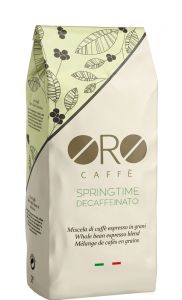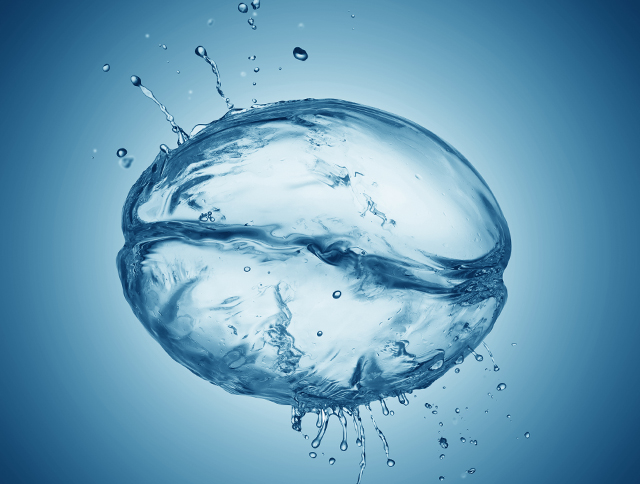
2-4 Workdays Article No. 10129
Aroma(s) : Malty, Floral
Article No. 10129

2-4 Workdays Article No. 10639
Aroma(s) : Chocolaty, Floral
Article No. 10639

2-4 Workdays Article No. 10079
Aroma(s) : Chocolaty, Nutty
Article No. 10079

2-4 Workdays Article No. 1105
Aroma(s) : Chocolaty, Nutty, Floral
Article No. 1105

2-4 Workdays Article No. 10648
Aroma(s) : Chocolaty, Floral
Article No. 10648

2-4 Workdays Article No. 10826
Aroma(s) : Fruity
Article No. 10826

2-4 Workdays Article No. 10533
Aroma(s) : Chocolaty, Floral
Article No. 10533

2-4 Workdays Article No. 10299
Aroma(s) : Chocolaty, Floral
Article No. 10299

2-4 Workdays Article No. 10948
Aroma(s) : Chocolaty, Fruity
Article No. 10948

2-4 Workdays Article No. 1906
Aroma(s) : Chocolaty, Nutty
Article No. 1906

2-4 Workdays Article No. 10782
Aroma(s) : Chocolaty, Nutty
Article No. 10782

2-4 Workdays Article No. 1753
Aroma(s) : Nutty, Floral
Article No. 1753

2-4 Workdays Article No. 1545
Aroma(s) : Chocolaty, Malty
Article No. 1545

2-4 Workdays Article No. 1709
Aroma(s) : Floral
Article No. 1709

2-4 Workdays Article No. 1665
Aroma(s) : Chocolaty, Floral
Article No. 1665

2-4 Workdays Article No. 1724
Aroma(s) : Chocolaty, Floral
Article No. 1724

2-4 Workdays Article No. 10023
Aroma(s) : Chocolaty, Floral
Article No. 10023

2-4 Workdays Article No. 10744
Aroma(s) : Chocolaty
Article No. 10744

2-4 Workdays Article No. 10736
Aroma(s) : Malty
Article No. 10736

2-4 Workdays Article No. 1869
Aroma(s) : Chocolaty
Article No. 1869

2-4 Workdays Article No. 1834
Aroma(s) : Chocolaty, Malty
Article No. 1834

2-4 Workdays Article No. 1003
Aroma(s) : Nutty, Floral
Article No. 1003

2-4 Workdays Article No. 1022
Aroma(s) : Nutty, Floral
Article No. 1022

2-4 Workdays Article No. 1021
Aroma(s) : Nutty, Floral
Article No. 1021

2-4 Workdays Article No. 1091
Aroma(s) : Nutty, Malty
Article No. 1091

2-4 Workdays Article No. 1092
Aroma(s) : Nutty, Malty
Article No. 1092

2-4 Workdays Article No. 1124
Aroma(s) : Chocolaty, Floral
Article No. 1124

2-4 Workdays Article No. 1546
Aroma(s) : Chocolaty
Article No. 1546

2-4 Workdays Article No. 1719
Aroma(s) : Malty, Floral
Article No. 1719

2-4 Workdays Article No. 1919
Aroma(s) : Floral, Fruity
Article No. 1919

2-4 Workdays Article No. 1913
Aroma(s) : Nutty, Floral
Article No. 1913

2-4 Workdays Article No. 10284
Aroma(s) : Fruity
Article No. 10284

2-4 Workdays Article No. 11032
Aroma(s) : Chocolaty, Floral
Article No. 11032

2-4 Workdays Article No. 1586
Aroma(s) : Floral, Fruity
Article No. 1586

2-4 Workdays Article No. 1475
Aroma(s) : Chocolaty, Nutty, Fruity
Article No. 1475

2-4 Workdays Article No. 10014
Aroma(s) : Chocolaty, Nutty
Article No. 10014
The Ultimate Guide to Decaffeinated Coffee: Health Benefits, Brewing Tips, and Best Brands
Decaffeinated coffee, often referred to as "decaf," is a popular choice for those who love the taste of coffee but want to avoid the stimulating effects of caffeine. Whether you're looking to cut back on your caffeine intake for health reasons or simply prefer a milder cup of joe in the evening, decaf coffee offers the perfect solution. However, there’s much more to decaf than meets the eye. This comprehensive guide will delve into the health benefits, debunk myths, explore brewing tips, and recommend the best decaf coffee brands, ensuring you enjoy every sip without compromise.
What Is Decaffeinated Coffee?
Decaffeinated coffee is regular coffee that has had most of its caffeine content removed. This process typically reduces caffeine by 97-99%, resulting in a beverage that retains the rich flavor of coffee with only a fraction of the stimulant. Various methods are used to decaffeinate coffee, each affecting the final flavor profile in unique ways.
Methods of Decaffeination
- Solvent-Based Process: This method uses chemical solvents like methylene chloride or ethyl acetate to remove caffeine. The beans are steamed to open their pores, then soaked in the solvent to extract the caffeine. Afterward, the beans are steamed again to remove any remaining solvent.
- Swiss Water Process: A chemical-free method that relies on water and osmosis to remove caffeine. The beans are soaked in hot water, which dissolves the caffeine, and the water is then passed through a carbon filter to remove caffeine molecules.
- CO2 Process: This modern method uses supercritical carbon dioxide to selectively extract caffeine from the coffee beans, preserving most of the coffee’s flavor and aroma.
- Natural Decaffeination (Indirect-Solvent Method): Often considered the best method for retaining flavor, the beans are soaked in hot water to dissolve the caffeine, which is then extracted using an organic solvent. The water, now containing the coffee's flavor compounds, is reintroduced to the beans to reabsorb these flavors without the caffeine.
Health Benefits of Decaffeinated Coffee
Decaf coffee offers several health benefits that make it an excellent choice for those looking to reduce caffeine intake:
1. Lowered Risk of Heart Disease
Studies have shown that drinking decaf coffee can lower the risk of heart disease, as it contains antioxidants that help reduce inflammation and improve heart health.
2. Reduced Risk of Type 2 Diabetes
Decaf coffee has been linked to a reduced risk of developing type 2 diabetes, partly due to its antioxidant content and the potential to improve liver enzyme levels.
3. Less Acidic
Decaffeinated coffee tends to be less acidic than regular coffee, making it a better option for those with acid reflux or sensitive stomachs.
4. Better Sleep and Reduced Anxiety
By choosing decaf, you can enjoy your favorite coffee without the risk of sleep disturbances or increased anxiety levels associated with caffeine.
5. Rich in Nutrients
Decaf coffee contains many of the same beneficial nutrients as regular coffee, such as magnesium, potassium, and vitamin B3.
Common Myths About Decaffeinated Coffee
Despite its benefits, decaf coffee is often misunderstood. Let’s debunk some common myths:
Myth 1: Decaf Coffee is Completely Caffeine-Free
While decaf coffee has significantly less caffeine than regular coffee, it is not entirely caffeine-free. A typical cup of decaf contains about 2-5 mg of caffeine, compared to 95 mg in a regular cup.
Myth 2: Decaf Coffee is Unhealthy
Some believe that the chemicals used in decaffeination make decaf coffee unhealthy. However, modern decaffeination processes, especially the Swiss Water and CO2 methods, are safe and leave negligible chemical residues.
Myth 3: Decaf Coffee Doesn’t Taste Good
While it’s true that decaffeination can affect flavor, advancements in decaf processing have significantly improved the taste quality, making it nearly indistinguishable from regular coffee.
How to Brew the Perfect Cup of Decaffeinated Coffee
Brewing decaf coffee to perfection requires attention to detail, much like regular coffee. Here are some tips:
1. Use Fresh, High-Quality Beans
Start with fresh, high-quality decaf beans. Look for beans that have been decaffeinated using the Swiss Water or CO2 process for the best flavor.
2. Grind Just Before Brewing
Grind your beans just before brewing to ensure maximum freshness and flavor. A medium grind works well for most brewing methods.
3. Use Filtered Water
The quality of your water greatly affects the taste of your coffee. Always use filtered water, free from impurities, to brew your decaf coffee.
4. Optimal Brewing Temperature
Brew your coffee at the optimal temperature range of 195°F to 205°F (90°C to 96°C) to extract the best flavors from your decaf coffee beans.
5. Experiment with Brewing Methods
Whether you prefer a French press, pour-over, or espresso machine, experiment with different brewing methods to find the one that best suits your taste.
Best Decaffeinated Coffee Brands
To help you enjoy the best decaf coffee, here are some top brands that offer high-quality, flavorful decaf options:
- Lavazza DEK Espresso: Lavazza is a renowned name in the coffee world, and their DEK Espresso is a top choice for decaffeinated coffee lovers. This blend combines strong Brazilian beans with mild Asian varieties, creating a harmonious, aromatic coffee with a creamy texture. The decaffeination process preserves the full flavor, making it an excellent option for those who want to enjoy a robust espresso without the caffeine kick.
- Kimbo Decaffeinato: Kimbo’s Decaffeinato offers a rich and full-bodied espresso experience. This coffee is decaffeinated using the CO2 method, which avoids the use of chemicals and maintains the beans' natural flavors. It's perfect for those who appreciate a deep, intense coffee with minimal caffeine.
- Lucaffé Decaffeinato: Lucaffé is known for its premium coffee blends, and their Decaffeinato is no exception. This decaf espresso is well-regarded for its fine, chocolaty aroma and thick crema, offering a luxurious coffee experience. Lucaffé’s careful roasting process ensures that the decaf retains a strong flavor, making it a favorite among decaf enthusiasts.
- Illy Decaffeinated Espresso: Illy’s decaf coffee is another standout choice, known for its finely balanced flavor profile that includes nutty, fruity, and pleasantly woody notes. The smooth finish and elegant aftertaste make it a premium choice for decaf espresso lovers.
Top Expert-Recommended Decaf Coffee Brands for the Ultimate Coffee Experience
- Swiss Water Decaf: Known for its chemical-free decaffeination process, Swiss Water offers rich, flavorful decaf coffee that’s gentle on the stomach.
- Lavazza Dek: Lavazza’s Dek is an Italian favorite, offering a smooth and balanced decaf espresso with hints of caramel and nuts.
- Kicking Horse Decaf: Kicking Horse Coffee is renowned for its organic, fair-trade beans. Their decaf blend is rich, full-bodied, and perfect for any brewing method.
- Peet’s Decaf House Blend: Peet’s Coffee offers a robust decaf house blend that is dark, flavorful, and satisfying for those who prefer a bolder cup.
- Volcanica Coffee Decaf: Volcanica offers a wide range of decaf options, from single-origin to blends, all decaffeinated using the Swiss Water Process to ensure top-notch flavor.
FAQs About Decaffeinated Coffee
Is Decaf Coffee Safe During Pregnancy?
Yes, decaf coffee is generally safe during pregnancy. However, it’s important to monitor overall caffeine intake, as decaf still contains small amounts of caffeine.
Does Decaf Coffee Raise Blood Pressure?
Decaf coffee does not raise blood pressure in the same way caffeinated coffee can, making it a safer option for those with hypertension.
Can Decaf Coffee Cause Acid Reflux?
Decaf coffee is less likely to cause acid reflux than regular coffee, but those with severe reflux should still consume it in moderation.
Conclusion
Decaffeinated coffee offers a great way to enjoy the rich, complex flavors of coffee without the stimulating effects of caffeine. Whether you’re reducing your caffeine intake for health reasons or simply prefer a milder cup, decaf coffee can be just as satisfying and beneficial as its caffeinated counterpart. By choosing high-quality beans, using the right brewing techniques, and exploring top decaf brands, you can enjoy the perfect cup of decaf coffee every time.


